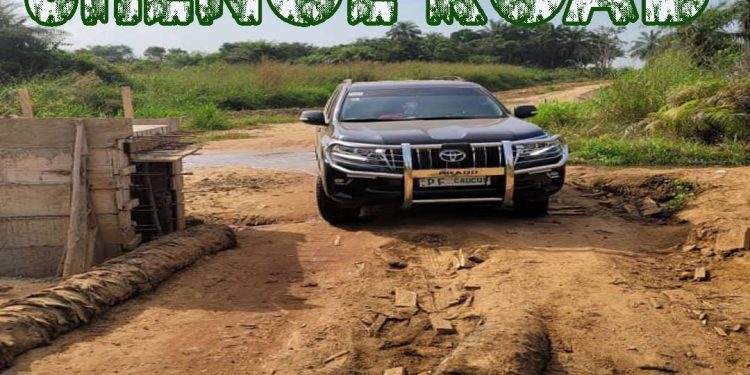By Hassan Osman Kargbo
The much-publicized Mokasanda–Shenge road rehabilitation project has been branded a complete failure by Hon. Veronica Kadie Sesay, the Parliamentary Female Caucus Leader and longest-serving Member of Parliament from Moyamba District.
In an audio message shared on the Make Kagboro Great Foundation WhatsApp forum, Hon. Sesay confirmed that the project, valued at Le 9.6 billion and awarded to PT Company Sierra Leone Limited under the supervision of the Sierra Leone Roads Authority (SLRA), was never delivered.
According to her, the contract, which covered the 49-kilometer Mokasanda–Shenge road, was scheduled for implementation between November 2020 and April 2021. However, the rehabilitation never commenced, and to date, the funds remain unaccounted for. Instead of improvement, the road has further deteriorated, leaving residents to grapple with worsening transport conditions.
“This project was a sham. The people of Kagboro deserve better. The contractors failed to deliver, yet the money vanished,” Hon. Sesay lamented.
Shenge, widely recognized as Sierra Leone’s richest fishing community, plays a crucial role in the country’s food supply chain. It provides the bulk of fish consumed in districts such as Bo, Kono, and Moyamba, where entire markets are named “Shenge” in acknowledgment of its significance. Despite this economic importance, the community has long suffered neglect, with the road to Shenge left in a deplorable state and nearly impassable.
As a result, residents have been forced to rely on sea travel, a mode of transport that has proven both costly and dangerous. The risks were tragically highlighted on September 8, 2009, when a boat accident between Shenge and Tombo claimed nearly 250 lives. For many locals, that tragedy should have been a wake-up call for urgent investment in safer, land-based transportation.
Yet, Shenge has remained sidelined. The road only resurfaced in national discussions during President Julius Maada Bio’s 2023 campaign stop in the community, when renewed promises were made. Those pledges, however, have also gone unfulfilled, reinforcing perceptions of deliberate marginalization of Kagboro Chiefdom.
Residents and leaders now argue that Shenge’s neglect reflects a broader pattern of exclusion, treating its people as less deserving of national resources than other Sierra Leoneans. The outcry has fueled calls for accountability, with civil society groups, youth movements, and community stakeholders demanding answers from both the government and contractors.
Where did the Le 9.6 billion go? Why was the project never implemented? And why has one of Sierra Leone’s most vital communities been left to fend for itself despite its contribution to the nation’s economy? These are the pressing questions now dominating conversations in Shenge and beyond.
Civil society activists have urged the Anti-Corruption Commission to immediately investigate the matter and ensure transparency in handling public funds. Youth groups in Kagboro Chiefdom are also mobilizing to press for action, insisting that the issue goes beyond politics and strikes at the heart of justice and dignity for Shenge.
For a community that has fed Sierra Leone for generations, residents believe it is time the nation stood up for Shenge. Anything less, they say, would be an unforgivable betrayal.










